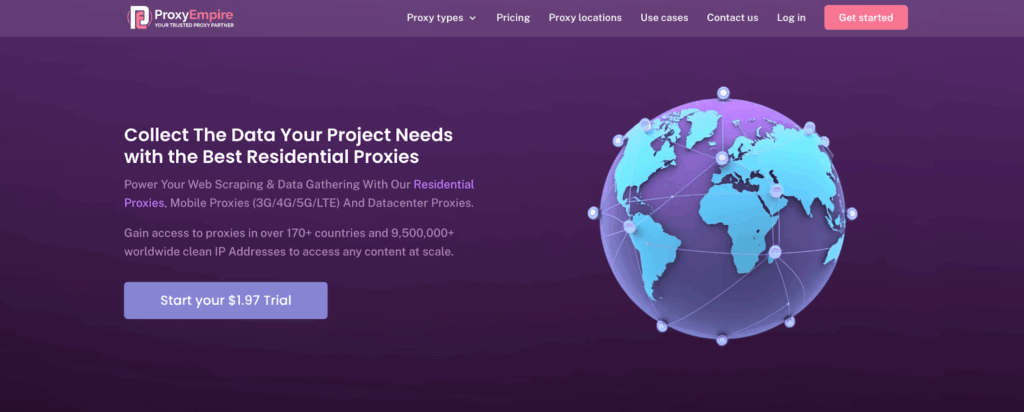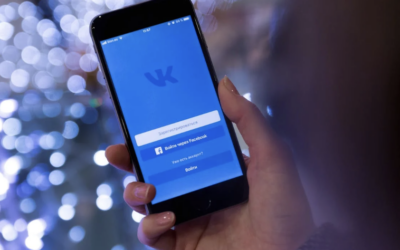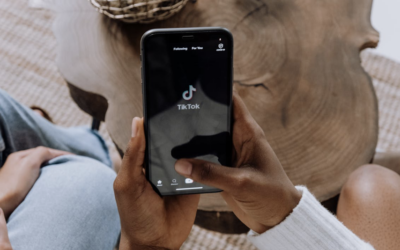If you’re running Google Ads campaigns, you know how tricky it can be to handle multiple accounts or test ads from different locations. Proxies help by masking your IP address, letting you appear from various places around the world. This keeps your accounts safe and makes sure your ads show up right for your audience. Whether you’re dealing with geo-restrictions or just want smoother operations, the right proxy changes everything.
What Are Google Ads Proxies and Why Use Them?
Google Ads proxies act as middlemen between your device and the internet. They route your traffic through different IP addresses, so Google sees requests coming from various spots. This setup helps marketers manage several ad accounts without raising red flags. It also lets you check how ads appear in specific countries or cities, which is key for targeted campaigns.
Many pros turn to these tools to dodge account suspensions that happen from using the same IP too much. Proxies keep things anonymous and steady, cutting down on detection risks. Plus, they open doors to geo-blocked content, giving a fuller picture of competitor ads. Some users pair them with automation tools for hands-off ad monitoring.
How to Choose the Right Proxy for Google Ads
Picking a proxy starts with your needs. Look for ones with strong uptime and quick response times to avoid slowdowns in your workflow. Residential types often work best because they use real home IPs, making them harder for platforms to spot. Think about coverage too – a wide range of countries means better testing across markets.
Check for flexible targeting like by city or ISP, which sharpens your ad strategies. Support for protocols such as HTTPS or SOCKS5 adds security layers. Avoid free options; they tend to be unreliable and risky. Instead, go for providers with clean IPs and good ethics. Test a few to see what fits your setup.
Top Google Ads Proxies in 2025
1) ProxyEmpire – Best Google Ads Proxies in 2025

ProxyEmpire is a premium proxy service provider designed to empower web scraping, data collection, and unrestricted internet access through a vast network of ethically sourced residential, mobile, and datacenter proxies. Below is a detailed description based on the provided information:
Overview of ProxyEmpire
ProxyEmpire offers a comprehensive suite of proxy solutions tailored for individuals, businesses, and developers seeking reliable, high-performance tools for data gathering, privacy protection, and geo-specific access. With over 30 million clean IP addresses spanning 170+ countries, ProxyEmpire provides unparalleled global coverage, ensuring users can access content at scale with a 99.9% uptime and lightning-fast response times (as low as 0.6 seconds).
Proxy Types and Features:
🏘️ Rotating Residential Proxies
Key Benefits
- Global Reach: Access to over 30 million IPs worldwide, covering every major region, with precise targeting options (country, city, state, ASN/ISP).
- High Reliability: A 99.86% uptime ensures uninterrupted service, supported by patented technology for enhanced speed and security.
- Ethical Sourcing: Proxies are responsibly harvested, ensuring quality and compliance.
- Versatile Use Cases: Supports web scraping, price monitoring, sneaker copping, SEO tracking, ad verification, and more.
- Integration-Friendly: Compatible with standard proxy protocols (HTTP, SOCKS5) and third-party tools like Multilogin, Dolphin Anty, Kameleo, Octobrowser, and Gologin.
- No Hidden Fees: Transparent pricing with all features included, starting at a $1.97 trial.
Use case:
2. ResiProx
ResiProx, a service from its parent company, delivers rotating residential and mobile proxies with a pool of over 10 million ethically-sourced IPs in 180+ countries. Based in an undisclosed location, it focuses on high-speed data collection for ad verification and multi-accounting. The proxies shine in bypassing geo-restrictions and anti-bots, with average response times below 0.3 seconds. This makes them solid for Google Ads tasks like monitoring competitor campaigns or testing localized ads. Their dynamic endpoint generator allows custom setups, fitting well with scripts in languages like Python or Node.js. While reliable for large-scale operations, some users note occasional setup tweaks needed for optimal integration.
- Key Features: HTTPS and SOCKS5 support; country, region, city, and ISP targeting; unlimited concurrent sessions.
- Accurate Info: 99.9% success rate and uptime; seamless with major tools like Selenium.
- Pros: Fast connectivity for efficient ad monitoring; premium IP quality avoids blocks.
- Cons: Limited to rotating sessions, which might not suit all static needs.
3. Bright Data
Bright Data offers residential proxies through its all-in-one platform, drawing from over 150 million IPs in 195 countries. Headquartered in an undisclosed spot, the service emphasizes ethical sourcing and compliance for web data extraction. It’s geared toward enterprise-level ad verification, with tools to navigate anti-bot measures and CAPTCHAs automatically. For Google Ads, this means reliable access to geo-specific ad views without downtime. The proxy manager provides full control, optimizing routes for speed. However, the complexity of features can overwhelm smaller users.
- Key Features: Country, city, carrier, and ASN targeting; integrated proxy manager; JS rendering for dynamic content.
- Accurate Info: 99.99% uptime and 99.95% success rate; supports petabyte-scale data handling.
- Pros: Strong anti-block capabilities; ethical practices ensure long-term usability.
- Cons: Steeper learning curve for beginners.
4. Oxylabs
Oxylabs provides residential and datacenter proxies with a network of 177 million IPs covering 195 countries. The company, location not specified, prioritizes ethical procurement and insurance for its products. It’s ideal for Google Ads through AI-ready tools that handle hard-to-scrape sites, aiding in ad intelligence and SERP monitoring. Proxies integrate with AI models for automated workflows, making campaign optimization straightforward. Some find the focus on large clients limits flexibility for solos.
- Key Features: Ethically sourced IPs; support for multiple languages; AI Studio for natural language data requests.
- Accurate Info: Insured products; memberships in cybersecurity organizations.
- Pros: Reliable for threat intelligence in ads; scales well for big campaigns.
- Cons: Geared more toward enterprises.
5. Decodo
Decodo, previously Smartproxy, supplies residential, static residential, mobile, and datacenter proxies from 125 million IPs in 195+ locations. Without a stated headquarters, it targets AI-ready scraping for ad tech and multi-accounting. For Google Ads, the site unblocker bypasses defenses, ensuring consistent ad access. Outputs in JSON or markdown suit analytics, but the broad toolset might dilute focus for simple users.
- Key Features: <0.2s average speed; 99.99% uptime; headless browser tech.
- Accurate Info: CAPTCHA handling; integrations with n8n for workflows.
- Pros: Fast for price aggregation in ads; easy onboarding.
- Cons: Overkill for basic tasks.
6. SOAX
SOAX delivers AI-powered proxies and APIs with over 191 million IPs in 195+ countries. Based in the UK, it bundles features for data extraction, perfect for Google Ads monitoring. Proxies handle dynamic content and blocks, with unlimited connections. It’s strong in compliance, but the bundled plans could feel restrictive for targeted needs.
- Key Features: HTTP(S), SOCKS5, UDP protocols; sticky/rotating sessions; city/ISP targeting.
- Accurate Info: >99.5% success rates; pursuing SOC 2 certification.
- Pros: Bypasses WAFs effectively; global coverage.
- Cons: Less flexible for non-bundled use.
7. IPRoyal
IPRoyal offers residential, ISP, and datacenter proxies from 34 million IPs. Headquarters undisclosed, it supports city-level targeting for ad campaigns. The API enables programmatic control, aiding Google Ads automation. Security features like 2FA stand out, though the network size is smaller than some peers.
- Key Features: Non-expiring traffic; smart rotation; workspace controls.
- Accurate Info: 99.9% uptime; KYC policy.
- Pros: Secure for team use; transparent network.
- Cons: Smaller pool limits options.
8. NetNut
NetNut provides residential, mobile, and datacenter proxies with 85 million IPs in 195+ countries. Location not mentioned, it’s tailored for ad verification with zero blocks. For Google Ads, static options maintain sessions, but the dashboard might require adjustments for new users.
- Key Features: Auto-rotating IPs; real-time control; 1M+ static IPs.
- Accurate Info: Trusted by Fortune 500; high mobile carrier integration.
- Pros: Low detection rates; efficient data collection.
- Cons: Setup time for custom needs.
9. ProxyRack
ProxyRack supplies residential, datacenter, and mobile proxies across 140+ countries. Without a listed base, it emphasizes unmetered usage for surveys and ad tasks. HTTP/UDP/SOCKS support helps Google Ads, yet reliability varies in high-traffic scenarios.
- Key Features: Geo targeting by city/ISP; proxy API; quick setup.
- Accurate Info: Ethical services; 10-minute integration.
- Pros: Scalable for web data; affordable speed.
- Cons: Occasional inconsistencies.
10. Froxy
Froxy delivers residential, mobile, and datacenter proxies from over 10 million IPs in 200+ locations. Headquarters unknown, it focuses on scraping for ad insights. Rotating sessions aid Google Ads, but cryptocurrency payments might not appeal to all.
- Key Features: HTTP/SOCKS5; city targeting; traffic rollover.
- Accurate Info: Partner program; knowledge base.
- Pros: Global efficiency; secure anonymity.
- Cons: Limited to certain payment types.
Benefits of Residential Proxies for Google Ads
Residential proxies bring authenticity to your ad work by using real home IPs. This cuts down on blocks, as platforms see them as regular users. You get better access to localized ads, helping refine targeting without travel. They also protect privacy, keeping your main IP hidden during tests. Pairing with SERP scraping APIs pulls search data tied to ads. Many find them more stable than other types for ongoing campaigns.
| Proxy Type | Speed | Anonymity Level | Best For Google Ads Use |
| Residential | Medium-High | High | Geo-targeting, ad verification |
| Mobile | High | Very High | Mobile ad testing |
| Datacenter | Very High | Medium | Quick checks |
Trends in Proxy Usage for Google Ads in 2025
AI integration shapes proxy trends, automating ad checks across regions. More users adopt ethical sources to stay compliant with platform rules. Mobile proxies rise for app-based ads, reflecting device shifts. Tools now handle voice search data, expanding reach. Some combine proxies with unblockers for tougher sites.
FAQ
What makes a proxy suitable for Google Ads?
Proxies for Google Ads need to offer broad geographic options, allowing users to simulate traffic from different regions for precise campaign analysis. They should include features like automatic IP rotation to maintain anonymity during frequent access to ad platforms. Clean and diverse IP pools ensure compatibility with various ad management software, enhancing overall efficiency in tasks such as bid adjustments.
Can I use free proxies for Google Ads?
Free proxies typically come with shared IPs that can lead to quick identification by ad networks, compromising campaign integrity. They often lack dedicated support for protocols needed in ad environments, resulting in inconsistent performance. Opting for premium services guarantees better integration with tools for ad creation and monitoring, reducing potential disruptions.
How do proxies help with geo-targeting in ads?
By routing connections through IPs in targeted areas, proxies enable viewing of region-specific ad variations without physical relocation. This approach uncovers insights into cultural preferences that influence ad engagement. For mobile-focused strategies, rotating mobile proxies align well with device-specific targeting needs.
Are mobile proxies better than residential for Google Ads?
Mobile proxies excel in replicating cellular network patterns, which is ideal for campaigns aimed at smartphone users. Residential proxies, on the other hand, draw from home-based connections, offering stability for desktop-oriented ad reviews. The choice depends on the ad format, with both types supporting secure multi-account handling through features like dedicated mobile proxies.




















